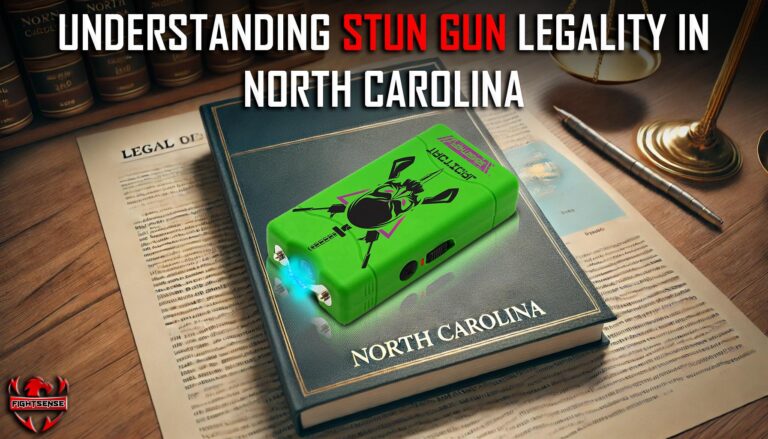Table of Contents
- North Carolina Legalizes Stun Gun Ownership Without License Requirements
- Understanding the New Regulations and Eligibility Criteria for Stun Gun Possession
- Safety Considerations and Responsible Usage of Stun Guns in North Carolina
- Recommendations for Consumers and Law Enforcement Under the Updated Stun Gun Policy
- In Summary
North Carolina Legalizes Stun Gun Ownership Without License Requirements
In a significant shift in self-defense legislation, North Carolina has removed the requirement for individuals to obtain a license before owning stun guns. This change aligns the state with a growing number of jurisdictions that recognize the importance of accessible non-lethal means of protection. Residents can now legally possess stun guns without navigating the previously mandatory regulatory hurdles, streamlining personal safety measures for many.
Key points of the new regulation include:
- Unrestricted ownership: Any adult resident can acquire a stun gun without applying for or securing a license.
- Legal compliance: Owners must still adhere to existing laws regarding use and carry restrictions.
- Enhanced self-defense: The legislative update is intended to empower citizens seeking alternatives to firearms.
Understanding the New Regulations and Eligibility Criteria for Stun Gun Possession
North Carolina has recently updated its stance on personal defense tools by allowing the possession of stun guns without the need for a permit. This change simplifies legal access to an effective self-defense device for residents while maintaining public safety. The new regulations emphasize responsible ownership, requiring only that individuals be legally eligible to possess a stun gun without any prior disqualifications such as felony convictions or restraining orders.
Key points to keep in mind include:
- Applicants must be at least 18 years of age.
- The device must be possessed for lawful purposes only.
- Restrictions remain on the use and carrying of stun guns in sensitive locations, such as schools and government buildings.
- Compliance with federal laws concerning electronic weapons is mandatory.
These criteria aim to balance individual rights with community safety, ensuring that stun gun possession in North Carolina is both accessible and regulated under clear legal guidelines.
Safety Considerations and Responsible Usage of Stun Guns in North Carolina
While North Carolina allows stun gun possession without a license, users must prioritize safety to prevent unintended harm. Always ensure your stun gun is kept secure and out of reach of children or unauthorized individuals. Regularly inspect the device for any damage or defects before use, and familiarize yourself with the manufacturer’s safety guidelines. Remember, stun guns are designed for self-defense, not for use in escalating conflicts or as tools of aggression.
Responsible ownership also involves understanding legal boundaries. Avoid using stun guns in prohibited areas such as government buildings, schools, and private properties where their use is forbidden. Training on proper handling techniques can significantly reduce the risk of accidents. Consider carrying your stun gun in a holster or protective case to prevent accidental discharge, and always inform others in your household about the device’s presence and safety measures.
- Store stun guns securely to prevent unauthorized access.
- Undergo safety training before first use.
- Use stun guns strictly for self-defense situations.
- Stay informed about location-specific restrictions and laws.
Recommendations for Consumers and Law Enforcement Under the Updated Stun Gun Policy
Consumers are encouraged to exercise cautious responsibility with stun guns now that North Carolina has removed the licensing requirement. Before purchasing, individuals should:
- Verify local ordinances, as some cities may have specific regulations despite the statewide allowance.
- Invest time in proper training to understand the safe handling, operational limits, and legal use cases of stun guns.
- Store stun guns securely and out of children’s reach to prevent accidental injury.
Law enforcement agencies should update their operational protocols and public education efforts to reflect this policy change. It is essential for officers to:
- Stay informed about the revised laws to appropriately enforce them and address any misuse.
- Engage in community outreach to educate consumers about the responsibilities and limitations associated with stun gun ownership.
- Coordinate with local governments to monitor potential impacts on public safety, reporting findings for further policy refinement.
In Summary
In summary, North Carolina’s new legislation permitting stun gun ownership without a license marks a significant shift in the state’s approach to personal defense regulations. While advocates praise the move for enhancing individual rights and access to non-lethal self-defense tools, critics urge careful monitoring to address any potential public safety concerns. As this law takes effect, residents and authorities alike will be closely observing its impact on community safety and legal enforcement.Check Our Other Blogs
- StunGun – Your Trusted Source for Stun Guns, Laws, and Self-Defense Tips
- PepperSprayLaws – Your Trusted Resource for Pepper Spray Information
- StunGunLaws – Your Trusted Guide to Stun Gun Legality and Safety





